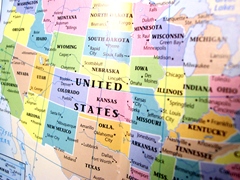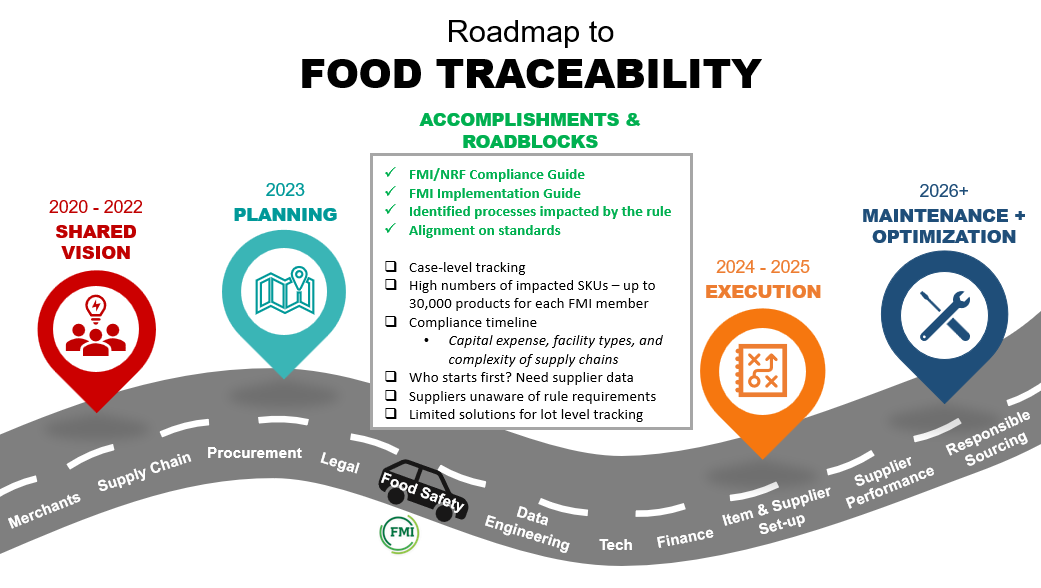By: Pat Davis, Vice President of State Government Relations & Grassroots, Food Marketing Institute 
With the holidays right around the corner, the vast majority of state legislatures have closed up shop, their business complete for the year. In just a few short weeks, though, many will reconvene for the 2015 legislative session, and the fun will start all over again. But before it does, I wanted to take a moment to reflect on the chaotic year that unfolded in statehouses across the country.
With gridlock and dysfunction increasingly the name of the game in Washington, more and more issues are now being fought out at the state, and even local, levels. FMI monitors over 80 issues at the state level. In those issue areas alone, we saw 4,603 bills introduced; 990 bills pass their house of origin; and 668 bills enacted into law – not to mention a slew of ballot measures that citizens voted on this past November.
While in the past, issues tended to be regional, or isolated to a particular state, these days with the right momentum an issue can have legs from coast to coast. The prime example in 2014 was minimum wage. Ten states enacted a minimum wage increase this past session: Connecticut, Delaware, Hawaii, Maryland, Massachusetts, Michigan, Minnesota, Rhode Island, Vermont and West Virginia. Meanwhile, voters in four states (Alaska, Arizona, Nebraska, and South Dakota) approved ballot measures raising their state’s minimum wage.
Overall, 39 states considered the issue, with over 250 bills introduced. Even a slight increase in the minimum wage can impact grocers, who operate with profit margins near 1 percent. To learn more about these bills, click here to see a chart of every enacted minimum wage law from the 2014 session, and click here to see a matrix of all state minimum wage activity in 2014.
Beyond minimum wage, 2014 saw action in the states on a number of priority issues for the grocery industry, ranging from alcohol licensing and food safety, to government assistance, food labeling, patent trolls and shopping bags – to name just a few. A chart of all these enacted bills, in our key issue areas, can be found here.
Notably, California became the first state to pass a statewide single-use plastic shopping bag ban. Although the new law preserved the over 100 existing city and county plastic bag regulations, it preempted any further local action in the state.
The Earth Policy Institute estimates that over 150 localities nationwide have banned plastic bags. The actual number is probably far greater. Cities, counties and towns across the country are exercising far more legislative and regulatory authority than ever before. To help our members keep track of all this activity, in 2014 FMI started the Local Monitoring Report, a weekly report tracking the six most impactful issues at the local level: Food Taxes, Genetically Modified Food Labeling, Minimum/living Wage, Paid Sick Leave, Plastic bags / Polystyrene Bans and E-cigarettes.
So that’s a taste of what happened this year. Stay tuned next month for the release of FMI’s 2015 State Legislative Outlook report, a prospective look at anticipated state legislation important to the grocery industry.

 Industry Topics address your specific area of expertise with resources, reports, events and more.
Industry Topics address your specific area of expertise with resources, reports, events and more.
 Our Research covers consumer behavior and retail operation benchmarks so you can make informed business decisions.
Our Research covers consumer behavior and retail operation benchmarks so you can make informed business decisions.
 Events and Education including online and in-person help you advance your food retail career.
Events and Education including online and in-person help you advance your food retail career.
 Food Safety training, resources and guidance that help you create a company food safety culture.
Food Safety training, resources and guidance that help you create a company food safety culture.
 Government Affairs work — federal and state — on the latest food industry policy, regulatory and legislative issues.
Government Affairs work — federal and state — on the latest food industry policy, regulatory and legislative issues.
 Get Involved. From industry awards to newsletters and committees, these resources help you take advantage of your membership.
Get Involved. From industry awards to newsletters and committees, these resources help you take advantage of your membership.
 Best practices, guidance documents, infographics, signage and more for the food industry on the COVID-19 pandemic.
Best practices, guidance documents, infographics, signage and more for the food industry on the COVID-19 pandemic.
